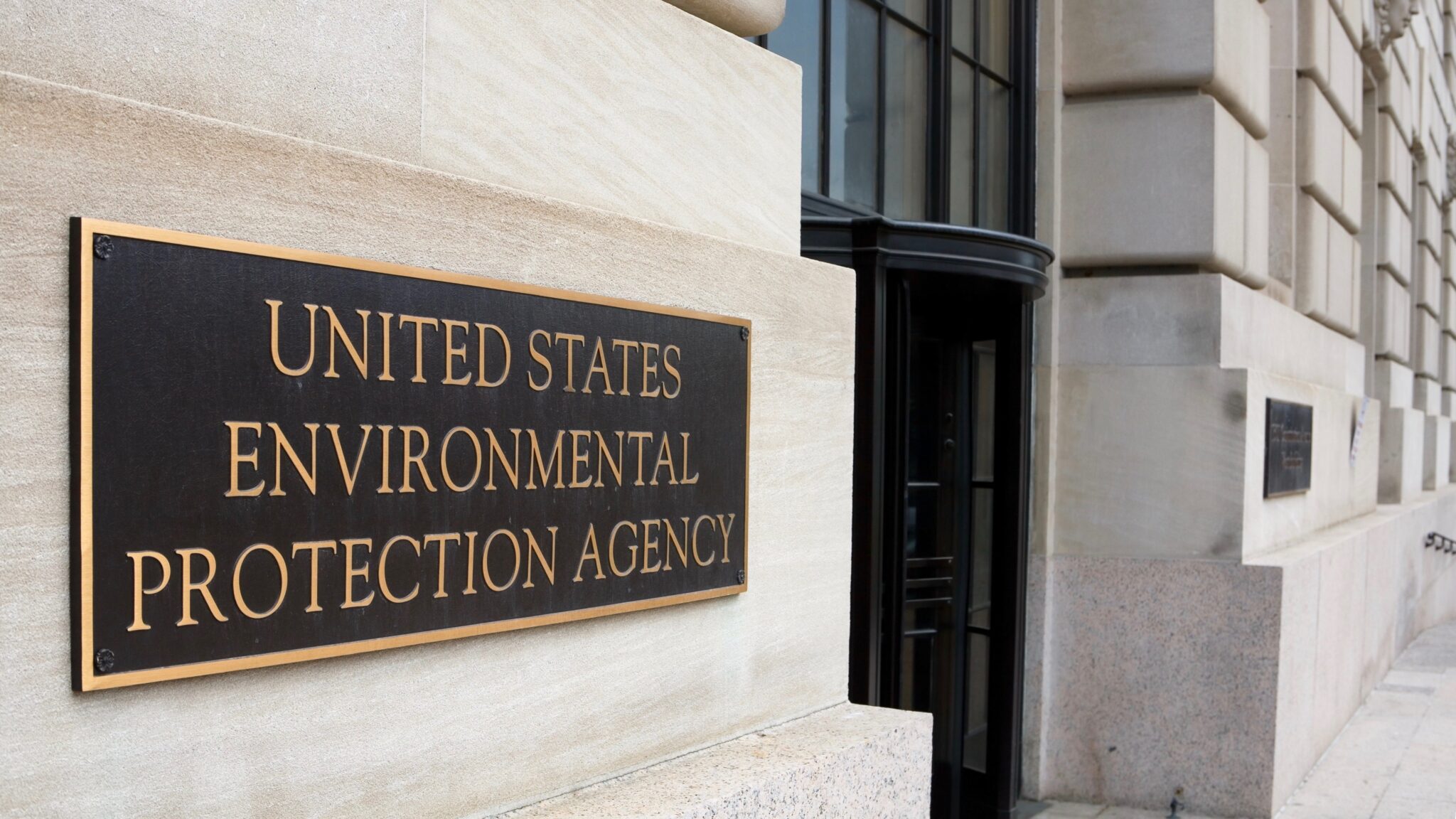
These Scientists Were Disbanded by the EPA — They Plan to Meet Anyway

EPA offices in DC. Skyhobo / E+ / Getty Images
A group of 20 scientists charged with reviewing the nation’s air quality standards plans to convene and to issue a report on the country’s air pollution regulations, even though the Environmental Protection Agency (EPA) disbanded their panel.
In a move that is consistent with the administration’s skepticism towards science and expertise, the EPA administrator, Andrew Wheeler, disbanded the Particulate Matter Review Panel, part of the Clean Air Scientific Advisory Committee, in October 2018, as The Hill reported.
When he disbanded the group, Wheeler claimed that the group — made up of some of the nation’s top scientists assigned to review the impact of soot and other microscopic air pollutants on human health — took too long to perform its task, according to Bloomberg Environment.
Now, in a seemingly unprecedented maneuver, the scientists will meet in Arlington, Virginia Oct. 10-11, one year after they were disbanded, to issue a report on whether or not the current federal particulate matter standard is sufficient, according to Reuters.
The group, which now calls itself the Independent Particulate Matter Review Panel wants to make sure there is a documented record of scientific consensus that reaches the EPA decision-makers.
“I’m proud to say that being disbanded is not an obstacle for our panel,” said Chris Frey of North Carolina State University who chairs the panel to the NC State press office. “If anything, being told that we were unilaterally terminated has redoubled my determination to discharge the public service to which I originally agreed.”
Even though Wheeler is a former coal-industry lobbyist, Frey is hopeful that he will consider the independent panel’s recommendations.
“As a group, this panel has more experts, more breadth, depth and diversity of expertise than the chartered Clean Air Scientific Advisory Committee,” Frey said, as E&E News reported.
Like Frey, most of the members of the independent panel come from universities and all are unpaid for serving on the panel.
“This is the first time in the history of EPA where the credibility of the agency’s science review process has been so compromised that an independent panel of experts has recognized the need for and will be conducting a comprehensive review,” said Chris Zarba, who will help lead the effort and once served as director of the EPA’s Science Advisory Board, another board that provides scientific advice to the agency, The Hill reported.
The Union of Concerned Scientists will host the panel since it was troubled that the EPA is operating without the scientific expertise it needs to ensure a particulate standard based on the best available science.
“Reconvening a disbanded pollutant review panel breaks new ground,” said Gretchen Goldman, a research director at the Union for Concerned Scientists, to The Hill. “Nothing like this has ever been done before. Indeed, nothing like this has ever been necessary. But we live in unprecedented times.”
The meeting will be run as if it is an official EPA meeting. It will be open to the public and media. We will take public comments. And top experts on particulate and health will discuss the state of the science and policy recommendations. https://t.co/6pyMwAnJsU
— Gretchen Goldman, PhD (@GretchenTG) September 26, 2019
The EPA, however, disagrees with the idea that it is without scientific expertise or that it writes regulations without considering science.
“EPA is committed to scientific integrity and transparency,” EPA spokeswoman Corry Schiermeyer said in an emailed statement when asked about the start-up of the independent panel, as Reuters reported. “EPA always welcomes comments from the public and it is not uncommon for special interest groups and coalitions to organize, meet and develop comments for submission to the record. EPA will continue to take into consideration these comments that meet our scientific standards.”
Frey, for his part hopes the EPA will consider the independent panel’s work.
“We will place our written report into the docket for this review cycle, which obligates EPA to look at our findings and advice,” he said to NC State. “We would like for our findings and advice to be considered by EPA staff as they revise the draft Integrated Science Assessment and draft Policy Assessment into final documents, and by the administrator in making a decision regarding whether to retain or revise the existing standards.”

 233k
233k  41k
41k  Subscribe
Subscribe 